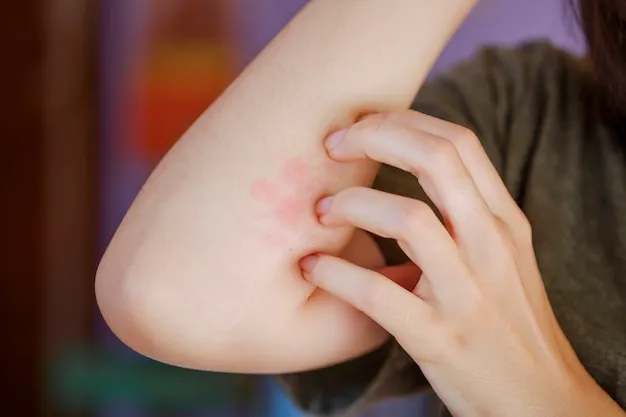Drug allergies can range from mild to life-threatening, making it essential to know when to seek professional help. In Alexandria, seeing a specialist for drug allergy treatment in Alexandria can provide you with the expert care and guidance needed to manage your condition effectively. This blog will discuss when it’s crucial to see a specialist and what to expect during your visit.
Recognizing the Symptoms of Drug Allergies
Understanding the symptoms of drug allergies is the first step in knowing when to seek help. Common symptoms include:
- Skin Reactions: Rashes, hives, and itching are typical skin reactions to drug allergies. While these may be mild, they can sometimes indicate a more serious reaction.
- Respiratory Symptoms: Difficulty breathing, wheezing, and nasal congestion may occur, especially if you have a history of asthma or other respiratory conditions.
- Gastrointestinal Symptoms: Nausea, vomiting, and diarrhea can be signs of a drug allergy, particularly with oral medications.
- Anaphylaxis: This severe, life-threatening reaction involves symptoms like swelling of the face and throat, difficulty breathing, rapid heartbeat, and a drop in blood pressure.
When to See a Specialist
Knowing when to see a specialist for drug allergy treatment in Alexandria can make a significant difference in managing your condition effectively. Here are key situations where specialist care is essential:
1. Severe or Life-Threatening Reactions
- Anaphylaxis: If you experience anaphylaxis, seek emergency medical attention immediately. After stabilization, follow up with a specialist to develop a long-term management plan.
- Severe Skin Reactions: Conditions like Stevens-Johnson syndrome or toxic epidermal necrolysis require immediate specialist care. These reactions can cause severe skin damage and require hospitalization.
2. Recurring Reactions to Multiple Medications
- Pattern of Allergies: If you notice a pattern of allergic reactions to multiple medications, a specialist can help identify the underlying cause and recommend safe alternatives.
- Cross-Reactivity: Allergic reactions to related drugs may indicate cross-reactivity. A specialist can test for this and guide you on which medications to avoid.
3. Unclear Diagnosis
- Uncertain Reactions: If you’re unsure whether your symptoms are due to a drug allergy, a specialist can perform tests to confirm the diagnosis.
- Complex Medical History: For individuals with complex medical histories, such as multiple allergies or chronic conditions, seeing a specialist ensures that all factors are considered in your treatment plan.
4. Desensitization Needs
- Required Medication: If you need to take a medication you’re allergic to, a specialist can perform desensitization procedures. This process involves administering the drug in controlled, gradually increasing doses.
- Monitoring and Safety: Desensitization should only be done under the supervision of a specialist in a medical setting, as it requires careful monitoring for any adverse reactions.
5. Preventive Care and Long-Term Management
- Developing a Management Plan: A specialist can help you develop a comprehensive allergy management plan, including strategies for avoiding allergens, using emergency medications, and regular monitoring.
- Patient Education: Specialists provide education on recognizing symptoms early, using epinephrine auto-injectors, and understanding when to seek emergency care.
What to Expect During a Visit to a Specialist
Visiting a specialist for drug allergy treatment in Alexandria involves several steps to ensure accurate diagnosis and effective management. Here’s what to expect:
1. Detailed Medical History Review
- Comprehensive Assessment: The specialist will review your medical history, focusing on previous allergic reactions, medications taken, and any other underlying health conditions.
- Family History: They may also inquire about your family history of allergies, as this can influence your risk of drug allergies.
2. Diagnostic Testing

- Skin Tests: Skin prick tests or intradermal tests may be performed to identify specific drug allergies. These tests involve applying a small amount of the drug to your skin and observing for a reaction.
- Blood Tests: In some cases, blood tests may be used to measure specific antibodies related to drug allergies.
3. Personalized Treatment Plan
- Medication Alternatives: Based on the results of your tests, the specialist will recommend alternative medications that are safe for you to use.
- Desensitization Protocols: If necessary, the specialist will create a desensitization protocol to allow you to take essential medications safely.
Conclusion
Knowing when to see a specialist for drug allergy treatment in Alexandria is crucial for effective management and prevention of severe reactions. Whether you’re dealing with a severe allergy, need desensitization, or simply want a thorough evaluation, consulting a specialist ensures you receive the expert care you need. If you suspect a drug allergy or have experienced any concerning symptoms, don’t hesitate to seek professional help.
Frequently Asked Questions (FAQs)
Q: How do I know if I need to see a specialist for a drug allergy?
A: If you experience severe reactions, have multiple drug allergies, or need to take a medication you’re allergic to, seeing a specialist is highly recommended.
Q: Can drug allergies go away over time?
A: In some cases, drug allergies can diminish over time, but it’s important to consult with a specialist before reintroducing any medication that previously caused an allergic reaction.
Q: What should I bring to my specialist appointment?
A: Bring a list of all medications you’re currently taking, including those that have caused reactions in the past, and any relevant medical records.
Q: Are there any risks associated with desensitization procedures?
A: While desensitization is generally safe when performed by a specialist, there is a risk of allergic reactions during the process. That’s why it’s done in a controlled environment with emergency care available.
Q: How often should I follow up with a specialist for drug allergy management?
A: Follow-up frequency depends on the severity of your allergies and your overall health. Your specialist will provide a personalized schedule for regular check-ups.



